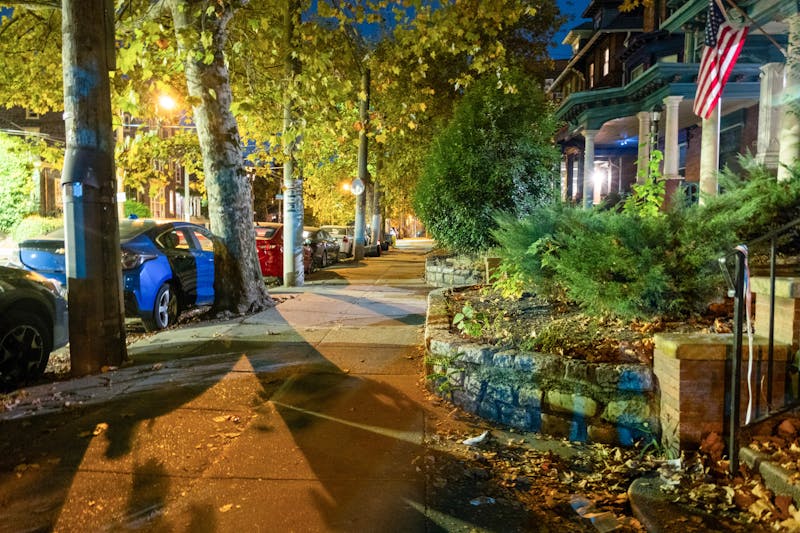Earlier this week, President Bush called for Americans to cut down on driving to conserve gas and instead use public transportation. Well, I'd like to, but using public transportation is not as easy as it sounds. I've been a firm believer in mass transit my entire life, but I'm beginning to lose faith.
Consider this situation: On Saturday I went to the suburbs to attend a funeral. Returning to the city, the hourly commuter train, which was 15 minutes late, refused passengers at my stop because it was full. Then when I tried to take the bus, it only took me to the transfer point. No further buses were going into the city. After walking considerably more than a mile to the Overbrook Station, I got a train two hours later than the one I'd originally tried to ride. All in all, it took me three and a half hours to travel a distance of about seven miles.
I find this unacceptable. But it isn't just my personal opinion that counts. Philadelphia needs a better public-transportation system, especially now, with gas prices so high. Furthermore, Philadelphia is home to a significant sector of the population who cannot afford cars, as well as the largest elderly population of all major American cities other than Miami, according to the Brookings Institution. While these are the people who need it most, everyone benefits from effective public transportation.
People in the Philadelphia area know SEPTA doesn't work well. On Tuesday, an Undergraduate Assembly e-mail included a survey from the Clean Air Council on students' use of SEPTA. It touched on the important issues: cost, safety, destinations and schedules.
Cost is an important factor. Although tokens only cost $1.30, they are inconvenient and are not available at some stations. Paying cash on board costs $2, and only exact change is accepted. Cost-effective passes exist, but they are constrained by time. Thus, they are only worth the cost if you use them almost every day. A more practical option exists. In New York, for instance, you can buy a certain number of rides, and the value stays on a renewable card without expiring at the end of the month.
Safety is also an issue that requires attention. While I have no fear of riding the buses, trolleys or subway during the day, I think twice at night or early in the morning, even if I am with friends. The SEPTA Web site says the Transit Police includes about 260 sworn personnel, but I can't say I've noticed their presence. Many of the stations are worn down, poorly lit and confusing, particularly on the Broad Street line and at the trolley terminus on Juniper Street.
In terms of destinations, the SEPTA system does reach many more areas than those on the two subway lines. Unfortunately, I'm not sure whether the majority of students are aware of this or know how to use it. For instance, it is not difficult at all to take the 124 or 125 bus to the King of Prussia Mall or the 27 to Plymouth Meeting. Any of many routes terminating at 69th Street will take you to shows at the Tower Theater in Upper Darby. Not every area is accessible, but you can generally get pretty close.
However, the real problem here is schedules. The Market-Frankford line stops running at midnight. You don't have to have the experience I did last summer of being locked in the station to realize that is not very convenient if you want to take the subway home from a night out. Some routes do run all night, particularly the 42 bus, which goes by the Hospital of the University of Pennsylvania, but many don't. On weekends, service is less frequent almost to the extent of being pointless.
There are numerous benefits of an effective public transportation system. Affordable fares make cities and their environs accessible to more people, whether they have cars or not. Buses and subways reduce traffic and congestion, as well as the pollution that cars cause. They eliminate the need to pay for parking and provide a safe, reliable way to get home after a night out, even if you've had a few drinks.
I've been a public-transportation user all my life. I practically came home from the hospital on the train when I was born. But if SEPTA can't improve, I'm getting a car or moving to another city.Edith Mulhern is a senior French, international relations and history majorfrom Ardmore, Pa. Voice of the Sparrow appears on Fridays.
The Daily Pennsylvanian is an independent, student-run newspaper. Please consider making a donation to support the coverage that shapes the University. Your generosity ensures a future of strong journalism at Penn.
DonatePlease note All comments are eligible for publication in The Daily Pennsylvanian.







